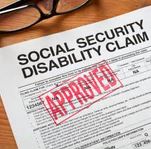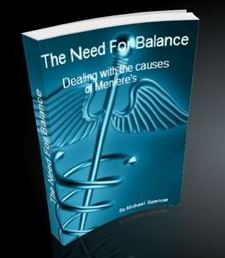Social Security Disability Benefits Meniere’s Disease
Posted Under: General Information on Meniere's Disease / Syndrome,Uncategorized
How to Apply for Social Security Disability Benefits when you have Meniere’s Disease
Table of Contents
We recently received this helpful article from Ram Meyyappan of Social Security Disability Help. Hope you find it useful if you are out of work in the U.S. because of Meniere’s.
Applying for Social Security Disability Benefits with Meniere’s Disease in the United States.
Meniere’s Disease can result in sporadic episodes of vertigo. The spinning sensation and fluctuating

hearing loss can make it almost impossible to maintain the responsibilities associated with full time work
activity. If the symptoms associated with Meniere’s Disease have prevented you from performing fulltime work activity and have resulted in the loss of income, Social Security Disability benefits may be able to help alleviate some of the financial strain.
There are two disability programs that you may qualify for if you suffer from this condition, including Social Security Disability Insurance (SSDI) and Supplemental Security Income (SSI).
Qualifying for SSDI Benefits
In order to qualify for SSDI, you must have earned enough work credits through your previous work history. As of 2013, you earn one work credit for every $1,160 that you earn.
You can earn a total of up to four work credits per year. If you are age 31 or older, you must have a total of 20 work credits in order to qualify for SSDI benefits. If you are under the age of 31, you must have worked half of the time since turning age 21.
For example, if you are 29, you must have worked four of the past eight years in order to have enough work credits to qualify for SSDI benefits. If you do not have enough work credits to qualify for SSDI benefits, you may be able to qualify for SSI benefits.
Qualifying for SSI Benefits
SSI is a needs-based program. You do not need any work credits to qualify for SSI benefits. You must, however, meet the financial criteria that have been set forth by the Social Security Administration (SSA).
In addition to proving that you are disabled according to Social Security guidelines, you must also not earn more than $710 per month as an individual or $1,060 per month as a couple. Your household assets must also not exceed $2,000 as an individual or $3,000 as a couple.
Meeting the Blue Book Criteria
The easiest way to qualify for disability is by meeting a condition that is listed in the Social Security Blue Book or a condition that meets or equals a Blue Book listing.
The Blue Book is a publication set forth by the SSA that lists all of the conditions that could possibly qualify an individual for Social Security
Disability benefits, along with the criteria that must be met for each condition that is listed.
Meniere’s Disease is covered under Section 2.07 of the Blue Book, which covers disturbance of
labyrinthine-vestibular function. According to the Blue Book, in order to qualify for disability benefits with Meniere’s Disease, you must be able to prove that:
• You suffer from disturbed function of vestibular labyrinth demonstrated by caloric or other vestibular tests;
• You suffer from hearing loss that has been established by audiometry.
To prove your disability to the SSA, you will want to include copies of certain medical evidence with your disability application. Examples of what should be included are:
• Bekesy audiometry results
• Pure tone and speech audiometry results
• Positional and caloric testing results
• Copies of polytomogram results
• Imaging reports of the skull and temporal bone such as CAT scan or MRI with or without contrast material.
For more information on applying for disability with Meniere’s disease, please visit:
Applying for Social Security Disability Benefits
You can apply for Social Security Disability benefits online (http://ssa.gov/pgm/disability.htm) or in person at your local Social Security office. You will be asked to fill out a number of forms including the Adult Disability Checklist, the Adult Disability Report, and the actual disability application.
If you are applying in person, you should bring copies of the medical records mentioned above with you to your appointment. If you are applying online, you will be provided with a cover sheet that will allow you to fax your medical evidence to the Social Security Administration.
Make sure that you do so as soon as possible to avoid delays in the processing of your application. You will receive a decision regarding your disability claim within three to six months of the date of your application.
If your claim for Social Security Disability benefits is denied, you have 60 days from the date of the denial notice to appeal the decision. If you need to file an appeal, you may want to consider retaining the services of a disability attorney.
A disability attorney can help you determine why your initial claim was denied and will help you gather the evidence that is needed to strengthen your claim.
Article by Ram Meyyappan
Social Security Disability Help
If you found this article useful Click here to support Meniere’s Help paypal.me/menieres
Related articles:







